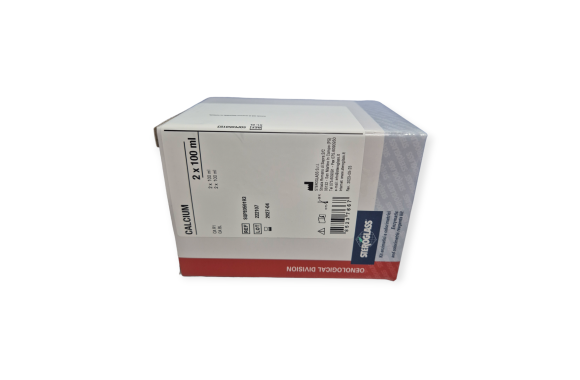Calcium Kit
Contact our expert for more informations.

Calcium, apart from in grapes, may derive in wine from oenological treatments with calcium carbonate, bentonite and kieselguhr, or it may come from storage in concrete containers.
Calcium in ionic form during alcoholic fermentation tends to precipitate as the progressive increase in ethanol decreases its solubility. It is important to determine its concentration, which, on the finished wine, should not exceed 80 mg/l, as higher concentrations could over time generate precipitation of neutral calcium tartrate, a salt whose formation kinetics are very slow.
Technical features
READY TO USE: Liquid and easy to use.
PRECISION AND SPECIFICITY: Characterized by high specificity, they provide accurate and repeatable data.
LOW COSTS AND LONG SHELF LIFE: Minimal cost per test and a long shelf life (average 24 months).
FAST ANALYSIS: Allow for quick and reliable results (up to 300 tests/hour), especially when used with automated instruments like our HYPERLAB series analyzers.
SIMPLE AND ECONOMIC CALIBRATION: It is possible to use single-method and/or multi-parametric calibration/verification standards. The determination of the Blank is performed automatically every 12 hours with the Hyperlab analyzers.
METHODS APPROVED BY INTERNATIONAL STANDARDS: Numerous enzymatic methods have been approved and validated by international organizations such as:
ISO (International Standardization Organization)
AOAC (American Association of Analytical Chemists)
IFU (International Federation of Fruit Juice Producers)
OIV (International Wine Office)
IDF (International Dairy Federation)
EBC (European Brewery Convention) and many others.
STERGLASS ENZYMATIC AND COLORIMETRIC KITS
Enzymatic and colorimetric kits are widely used in quality control for the main analytical determinations of a variety of food products such as fruit juices, wine, beer, dairy products, eggs, meat, and for the monitoring of fermentation processes carried out by microorganisms for the determination of sugars, organic acids, and other components such as sulfites, phenolic compounds, and metals.
Based on high-quality purified enzymes, enzymatic analysis allows for precise, highly accurate, and repeatable measurements, even in complex matrices. The absorbance variation, measured spectrophotometrically as a result of enzymatic transformations, is closely correlated with the concentration of the various analytes sought.
Industries
Applications
Product codes
| Steroglass code | Description | N° analyses |
|---|---|---|
| SQPE059193 | Calcium Kit 2x100ml | manual 100/200; automatic 400/600 |
